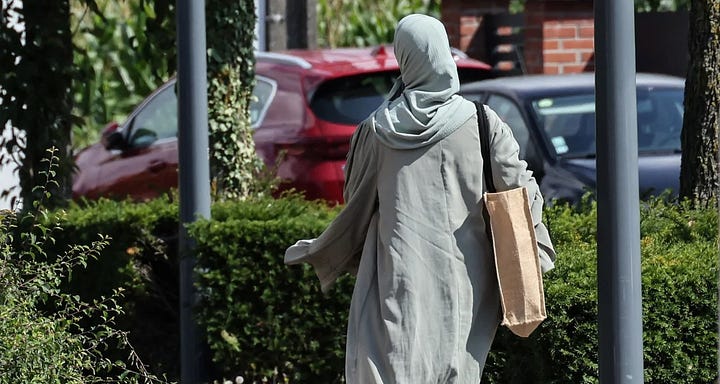
France’s highest court, on Thursday, upheld the government’s prohibition on students in public schools wearing the abaya, a long, robe-like garment commonly worn by Muslim women. This decision has raised concerns among rights groups who anticipate increased discrimination as a consequence.
In a press release published online, the court asserted, “As things stand, the judge considers that the ban on wearing these garments does not constitute a serious and manifestly illegal infringement of a fundamental freedom.”
The legal basis for this ban stems from a law passed in 2004 that prohibits the display of “conspicuous” religious symbols in French schools. The court argued that the abaya’s wearing was a component of a process of religious affirmation, citing comments made during discussions with students.
The legal challenge to the ban was initiated the previous Friday, and arguments from both sides were presented on Tuesday. Action Droits Des Musulmans (ADM), a Muslim rights group that filed the appeal, contended that the ban infringes upon “fundamental rights,” including the right to personal freedom. Vincent Brengarth, the group’s lawyer, argued before the hearing that the ban had been arbitrarily imposed, as it lacks a legal definition of what constitutes an abaya. In response to Thursday’s ruling, ADM issued a statement asserting that the court had failed to fulfill its role of protecting the fundamental freedoms of children, ensuring their access to education, and preserving their privacy without discrimination.
ADM also expressed deep concerns regarding the potential consequences of this decision on young girls, who may face daily discrimination based on their ethnic and religious appearance, the aggressiveness of dress interrogations, and the trauma and harassment they endure. These factors could hinder their access to education and academic success.
French Education Minister Gabriel Attal, however, applauded the court’s ruling, deeming it “an important decision for the schools of the Republic.” He emphasized the purpose of schools is to embrace all students with equal rights and duties, without discrimination or stigmatization.
French President Emmanuel Macron previously defended the ban, which is the latest in a series of contentious restrictions in France related to clothing associated with Muslims. Macron maintained that the ban does not “stigmatize” anyone but rather addresses those who promote the abaya.
In recent years, France has implemented a series of controversial bans and restrictions on customary Islamic dress, often sparking criticism from Muslim nations and international human rights organizations. Last year, lawmakers supported a ban on wearing the hijab and other “conspicuous religious symbols” in sports competitions. This amendment was proposed by the right-wing Les Républicains party, which argued that the hijab could jeopardize the safety of athletes wearing it during sports activities.
In 2018, the United Nations Human Rights Committee declared that France’s previous ban on the niqab, full-face veils worn by some Muslim women, violated the human rights of those who wore it.